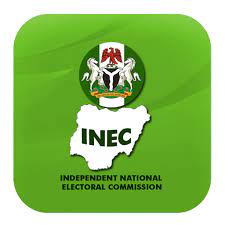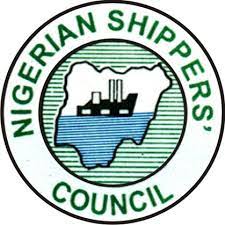Oil & Gas
Sylva, NCDMB Host First African Content Roundtable in Bayelsa
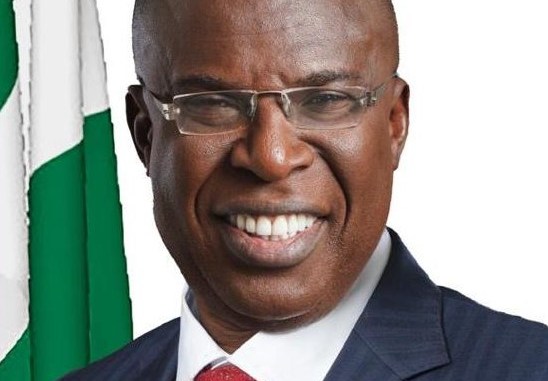
From Tayese Mike, Yenagoa
The Minister of State for Petroleum, Chief Timipre Sylva and the Nigerian Content Development Monitoring Board, last Thursday hosted the Ist African Local content Roundtable(ALCR) discussion in Yenagoa, the Bayelsa state capital.
Declaring the ceremony open, the Minister said holding the maiden edition of the African Roundtable discussion in a state where oil and gas was first recorded in commercial quantity in Africa and indeed Nigeria shows that the country was a leading example in content development.
He commended the NCDMB for initiating the Roundtable discussion, saying by this effort, it has set the pace as the premier Local Content regulator in Africa and a worthy example to sister nations that seek guidance to institutionalize Local Content practices in their jurisdictions.
According to him, the partnership with APPO is also commendable as it will provide a sustainable structure for driving regional collaboration on local content matters.
“The objective of this pan-African Roundtable is to institutionalize peer review mechanism among Oil-producing countries on local content as a key development imperative for domestication and sustainable growth of Africa’s hydrocarbon resources”.
“Any country that aspires to achieve rapid and sustainable economic growth must put in place an economic model that enables its human capital to harness its natural resources to create wealth and economic prosperity”.
“Nigeria embraced this model by adopting local content as an economic development model for the oil and gas sector, in view of its abundant hydrocarbon resources estimated at 37 Billion barrels of crude oil and 202 TCF of gas reserves.
We define local content as value added to or created in the Nigerian economy by a systematic development of capacity and capabilities, through deliberate utilization of Nigerian services, human and material resources in the Nigerian oil and gas industry.
Through implementation of local content we have achieved significant growth in-country value addition from less than 5% in 2010 to 35% in 2021 and we have set an ambitious target to achieve 70% local content in the oil and gas sector by 2027.
“Our success story in the oil and gas industry has led to bold step to extend local content to other sectors of the Nigerian economy. As a caring African country, we have also considered it necessary to amplify the benefits of local content to our fellow African countries and that is the essence of the African Local Content Roundtable”.
He said, everyone knows that decades of hydrocarbon production in Africa have not translated to the desired economic growth in our Continent.
According to Sylva, while over 15 African nations are producing and exporting crude oil, the sad reality is that our people have not benefitted maximally from this natural resource, either because we have not managed the proceeds optimally or we failed to domesticate the core operations of the industry.
“We must therefore use the opportunity of this RoundTable to initiate conversations around Local Content, share success stories, challenges and come up with policies that would deepen local participation and domiciliation in our respective countries.
One of the pathways for this desired collaboration and cross-country development is the African Continental Free Trade Area (AfCFTA) and I am pleased that we have a representative of AfCFTA in this forum.
Indeed, AfCFTA provides an opportunity to create a single market through the facilitation of free movement of goods, services and investment within the 54 member states of the Continent, creating access to 1.2 billion customers, with a cumulative Gross Domestic Product (GDP) of over US$3.4 trillion.
It is imperative that African oil-producing countries and their companies cooperate closely in developing and sharing capacities and capabilities to optimize the hydrocarbon deposits and achieve economic growth and development”.
“For example, we established the biggest FPSO integration yard in Lagos, Nigeria and so many other facilities that can be used by other African countries.
It makes better business sense to partner with an Umbilicals producing plant in Angola, or a bolt manufacturing company in Niger Republic instead of going all the way to United States and Norway for the same products.
We must take firm decisions and develop policies and projects that would position our industry competitively and sustain our economy under the emerging energy transition.
The Federal Government of Nigeria took firm steps in this regard very recently, funding two strategic energy projects in Nigeria. A 10,000 tons per day methanol plant and 500 million standard cubic feet per day gas processing plant in Brass, Bayelsa State and the Ammonia and Fertilizer plant in Akwa Ibom State.
“It is my expectation that the ALCR will become a signature event, leveraging on the wonderful foundations already built by APPO and rotating among all the African oil producing countries”.
In his speech, the co-host, Engr Simbi Wabote, who is the Executive Secretary of Nigerian Content Development Monitoring Board (NCDMB) said Africa needed to start discussion on how the continent can use its Hydrocarbon resources to migrate into a renewable energy.
According to Wabote, NCDMB as the leading in the development of local content in the Oil and Gas sector decided to bring all African oil producers together for them to start the discussion. Saying sustainability and continue growth to tackle poverty situation in the continent to bring about energy sustainability for the people is key to African leaders.
” I think its time for African to begin to come together on how to use their resources to migrate into a renewable one. The discussion is about climate change which we believe is somehow renewable and that has become topic all over the world”, he said.
He said with the threat of the climate change, what it portend for Africa is that very soon the natural resources that the continent has not even tapped will not be useful anymore. “Therefore we need to start the discussion on how we can use our hydrocarbons resources to migrate into a renewable energy. That is very important to us”.
Engr Wabote said why the local content roundtable is symbolic is because in Africa continent and the World, everybody knows that Nigeria is leading in local content when it comes to oil and gas sector.
“We have so many African countries that have come to jaw-jaw with us to learn the strategy on how to develop local content in the hydrocarbon sector. For us we feel we are the leader in that sector, we need to bring other African countries together in other to develop the local content since for them they are just discovering hydrocarbon resources and the discussion is how to migrate into energy”.
Wabote, who highlighted the achievements made by Nigeria in the last few years in the implementation of the local content policy, said the per centage of local content participation have been moved from 35 per cent to 70 per cent under his watch,” the local content policy in Nigeria has created indigenous contractors that are capable and strong, we have local participation in the vessels ownership”
Oil & Gas
Lawyers Integral to Optimal Regulatory Compliance in Oil Business – NMDPRA
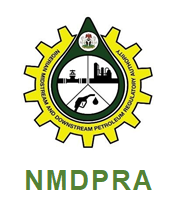
The Midstream and Downstream Petroleum Regulatory Authority (NMDPRA) said the role of legal practitioners is critical across the midstream and downstream energy business value chain in the promotion of optimal regulatory compliance.
Chief Executive, NMDPRA, Farouk Ahmed said this on Monday in Abuja at its 2025 General Counsel and Legal Advisers Forum for Midstream and Downstream Petroleum Companies in Nigeria.
The forum has its theme as ‘Advancing a Collaborative Compliance Culture in Nigeria’s Midstream and Downstream Petroleum Sectors’.
Ahmed was represented by Ogbugo Ukoha, Executive Director, Distribution System, Storage and Retailing Infrastructure, NMDPRA.
He said that the sector’s complexity required a unified compliance culture, rooted in robust and enabling legal frameworks, transparency, accountability and shared responsibility.
“The scope of operations of the sector covers hydrocarbon processing, wholesale marketing, transportation, storage, distribution and retail, and its complexity requires more than technical efficiency.
“The role of legal practitioners is critical across the midstream and downstream energy business value chain.
“They help to promote optimal regulatory compliance to set rules and standards of operations in our complex operational and volatile market environment,’’ he said.
Ahmed said that strategic and pragmatic solutions would be established from the forum to enhance performance of the sector towards creation of shared value for investors and the extensive market of Nigeria and the region.
He said that the Petroleum Industry Act (PIA 2021) had fundamentally restructured Nigeria’s petroleum industry by delineating regulatory responsibilities of the industry into the Upstream, midstream and downstream Petroleum operations.
According to him, the Act prescribed that all operations in the midstream and downstream sectors could only be conducted under appropriate licenses, permits and authorisations granted by the NMDPRA.
He said the PIA also mandated NMPDRA to make regulations concerning midstream and downstream petroleum operations in consultation with its licensees and stakeholders.
“As a result of the feedback received from our stakeholders on the need to strengthen regulatory compliance through simplified regulations, NMDPRA is implementing an inclusive stakeholder process of streamlining the gazetted and published regulations.
“This process will mitigate the complexities of navigating and implementing numerous regulations; eliminate inconsistencies and repetitions across multiple regulations; streamline regulatory processes for ease of business; and encourage investments in the industry.
“Kindly use this forum to critically review and make recommendations on the above.
This will enable us to improve the overall compliance of operators and the performance of the regulatory instruments (Legal frameworks and licenses) in the midstream and downstream sectors,” He said.
He said that NMDPRA would continue its commitment to effective stakeholder collaborations that would foster ease of doing business, investor confidence and sustainable operations.
Deputy Speaker, House of Representatives, Benjamin Kalu said that the PIA as a testament to the foresight and dedication of the National Assembly, had fundamentally reshaped Nigeria’s petroleum sector.
Kalu was represented by Ugochinyere Ikenga, Chairman, House Committee on Petroleum Resources, Downstream.
He said that the act had proven how strategic legislation could serve as a potent catalyst for compliance, investment attraction, and robust sector growth.
“For the PIA to remain truly effective, adapting to a dynamic global energy landscape and addressing unforeseen challenges, there must be an institutionalised robust mechanism for its continuous refinement.
“This is precisely where the invaluable insights of our nation’s petroleum experts and our general counsels, the legal architects and navigators of this complex framework, become indispensable.
“For or further synchronisation and effective post-legislative scrutiny, we must actively solicit and integrate your concerns.
“We envision a future where the National Assembly’s specialised committees regularly invite you professionals to public hearings and dedicated technical working groups,” he said.
Kalu said that this proactive engagement would transform abstract legal principles into tangible operational realities, furnishing us with the real-world data and case studies needed to truly understand the PIA’s strengths and weaknesses.
“Your feedback will illuminate where the PIA might be technically challenging, where legal interpretations create bottlenecks, or where new global trends necessitate legislative evolution,’’ he said.
Oil & Gas
OPEC Launches Campaign for Sustained Global Upstream Investment
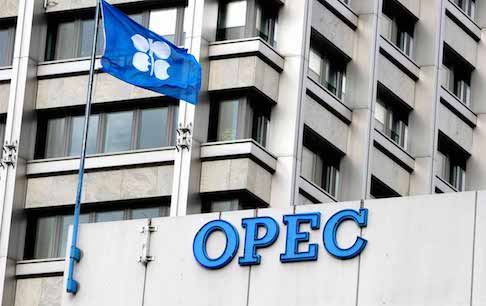
Torough David, Abuja
The Organization of the Petroleum Exporting Countries (OPEC) has launched a global investment drive seeking attention to creating value in the upstream oil and gas industry.
The Organization is calling for urgent and sustained investment in the global upstream oil sector, warning that a cumulative $14.
9tn will be required between 2025 and 2050 to meet projected demand and prevent a future energy crisis.This investment figure, equivalent to $574bn annually, represents the bulk of the $18.2 trillion in total oil-related investments needed over the 25-year period.
The OPEC had projected that $18.2tn investment would be required to meet global oil demand between 2025 and 2050, as it dismissed the notion of a looming peak in fossil fuel consumption as a “fantasy.
”According to the 2025 World Oil Outlook of OPEC, oil demand is projected to rise from 103.7 million barrels per day in 2024 to 116.5 mb/d by 2045 and peaking at around 123 mb/d by 2050, an 18.6 per cent increase over 26 years.
It also noted the need for continued investments in various segments of the sector to meet this demand.
It noted that of the total investment requirement, upstream operations, including exploration and production, are expected to gulp the lion’s share at $14.9tn, or $574bn per year, as producers scramble to ramp up supply. Midstream and downstream investments will require $1.3tn and $2tn, respectively.
“Cumulative oil-related investment requirements to meet projected demand are assessed at $18.2tn over the period between 2025 and 2050.
“This is marginally higher than projected in the WOO 2024, as despite the outlook period being one year shorter, this Outlook has also seen long-term oil demand revised upwards, and liquids supply has followed.
“Total upstream investment requirements make up the bulk of the needed capital expenditure, now projected at $14.9tn, or $574bn per annum. Downstream and midstream investment requirements are projected at $2tn and $1.3tn, respectively,” the report said.
OPEC Secretary-General, Haitham Al Ghais, said continued investments are essential to guarantee future energy security and affordability, especially in the Global South.
“There is no peak oil demand on the horizon,” Al Ghais declared in the report’s foreword. “Efforts to rapidly phase out fossil fuels are unrealistic and disregard energy security, affordability, and socio-economic realities of billions still lacking basic energy access,” he said.
Oil & Gas
FG Declares End to Dormant Fields on Oil Production

By David Torough, Abuja
In a renewed push to meet its OPEC production quota and 2025 budgetary targets, the Federal Government yesterday declared an end to the era where oil companies acquire field licenses and leave them dormant.
The government warned that it would no longer tolerate operators lacking the technical and financial capacity to develop oil fields, stressing that such licenses would be withdrawn.
Minister of State for Petroleum Resources (Oil), Senator Heineken Lokpobiri issued the warning at the ongoing 2025 Nigeria Oil and Gas Energy Week in Abuja.
Lokpobiri said the government was determined to maximize oil production by ensuring that only serious investors retain access to Nigeria’s hydrocarbon resources.
The conference had the theme: “Accelerating Energy Progress Through Investment, Global Partnerships and Innovation”.
Lokobiri stated that, “In our ongoing drive to boost national oil production, the Federal Government remains resolute in ensuring that maximum value is derived from upstream assets currently held by operators.
“This objective has taken on greater urgency as global financing for oil and gas projects continues to tighten, making it increasingly difficult for all operators to secure the capital needed to develop these assets.
“It is no longer acceptable for critical national resources to remain in the hands of companies that lack the technical or financial capacity to optimize them or worse, those who use such licenses merely as a lever to access scarce capital, only to divert it to unrelated ventures.
“Our oil and gas industry has witnessed far too many cautionary tales of this nature, and we must now draw a clear line”.
He said the government has engaged an international consultant to evaluate the 273 fees and rates faced by oil companies in the country to align them with international best practices.
Also, the Minister of State Petroleum Resources (Gas), Ekperikpe Ekpo said Nigeria had proven gas reserves of over 200 trillion cubic feet, yet value would only be created when resources were developed and utilised.
Ekpo said that through the Decade of Gas initiative, the country was focused on translating its vast gas wealth into tangible socio-economic benefits.
This, he said, included driving industrialisation, expanding power generation, increasing domestic Liquefied Petroleum Gas (LPG) usage, deepening gas-to-transport adoption, and growing gas export capacity.
Group Chief Executive Officer of NNPC Ltd, Engr. Bashir Bayo Ojulari disclosed that the Ajaokuta-Kaduna-Kano (AKK) Gas Pipeline has successfully crossed the River Niger, boosting the hope of the project’s completion by Q4 2025.
Ojulari, who described the development as a significant milestone, said the feat was achieved through effective and innovative contract reengineering and industry collaboration.
He also disclosed that for the first time in a long while, the nation enjoyed 100% crude oil pipelines availability throughout June 2025.
He said the feat which was possible through the industry-wide security interventions led by the NNPC helped to boost crude oil production.
He however called for more investments to boost production, adding that NNPC Ltd has been able to turn the narrative around by consistently meeting its cash-call obligations to Joint Venture operations.
He said the Petroleum Industry Act (PIA) has placed NNPC Ltd in a good position to live up to its responsibility of leading the industry in financing projects.








